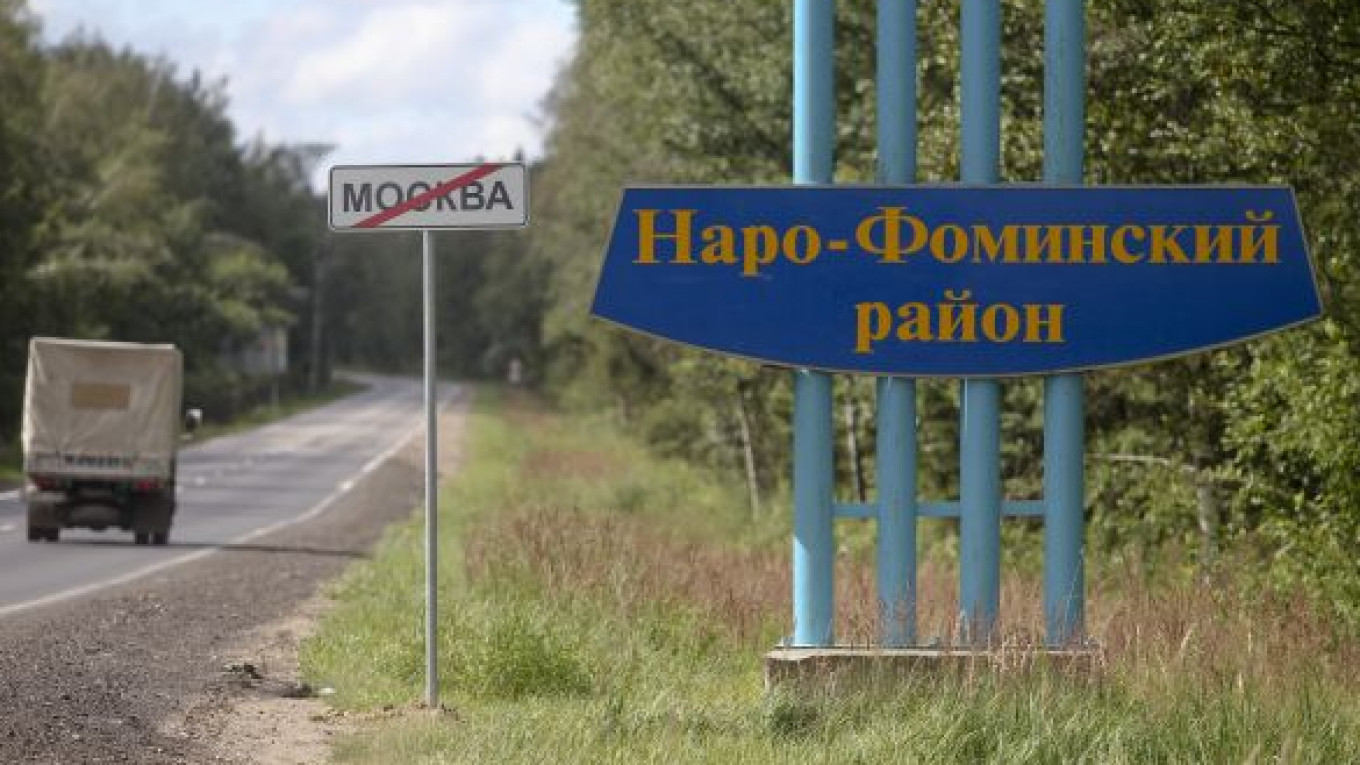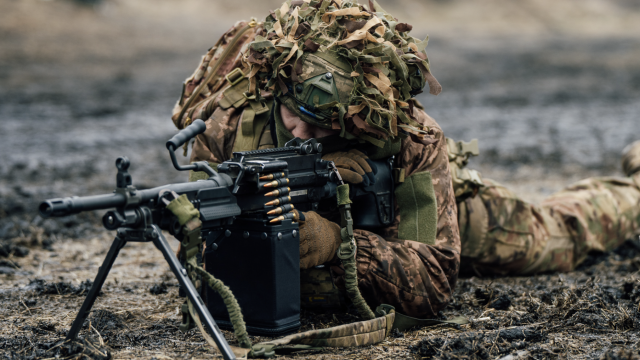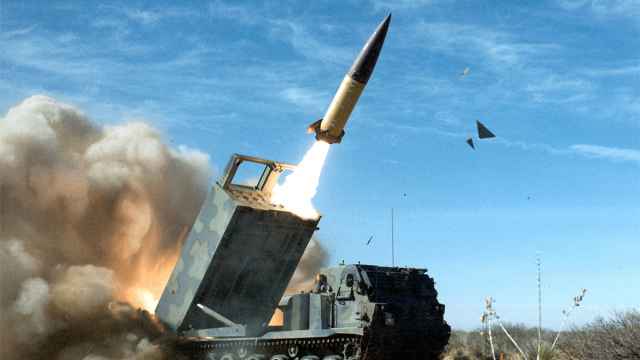The confiscation process for private land in expanded Moscow will not take more than 30 days, according to a bill being discussed by the municipal government, Vedomosti has learned.
The need to develop new legislation to facilitate official construction in the added territory was ordered by then-President Dmitry Medvedev. Officials said the first draft of the bill, which appeared in July, was "raw," and they confirmed that it would be improved.
The new bill is even tougher in dealing with owners of property that the city wants to seize. As of now, the land acquisition process for state needs, such as infrastructure, construction and the like, requires that owners be given at least a year's notice, which can result in either a court case or an evaluation and sale in case of mutual agreement.
The bill foresees a simplified confiscation system. Once the government has determined it needs the property, it sends the owner a notification and a contract proposal that already includes a valuation made by independent appraisers.
If the owner doesn't agree, officials can start a court case that judges the legitimacy of the confiscation and the fairness of the price offered. A source told Vedomosti that the original idea was to give property owners three months to consider the offer.
But Andrei Ivakin, a department director at the Economic Development Ministry, said the government decided to cap the consideration period at one month.
The document is being finalized at the federal level under the auspices of Deputy Prime Minister Dmitry Kozak. No final decision has been made on the project, a spokesman for Kozak said.
The authorities will try not to confiscate private property, and a month is more than enough time for a legal entity to make a decision, a source at City Hall said.
But experts disagree.
"A month is a very short period of time for a decision by the owner," said Baker & McKenzie partner Konstantin Kuzin. "To prepare a competent response to the authorities, it's necessary to gather a large number of documents. And what if the official notification about the confiscation gets lost or doesn't arrive on time?"
"The city will face a wave of lawsuits from people who don't agree with the confiscation, and it will eventually have to negotiation anyway," one large landholder said.
"Well, at least they're not doing the confiscation in one minute," another property owner said.
Kuzin doesn't see the need to rush.
"In expanded Moscow, no one is planning on hosting the Olympics or an APEC summit, and there is still no decision to move officials there," he said.
The bill also envisions allowing city authorities the right to distribute land and hire contractors without a tender. Currently, only the president has that right. It is also allowed for Olympic projects.
But these provisions of the legislation will not apply to all of the expanded territory, only to specific properties relating to engineering, transportation and social infrastructure that will be on a list to be approved by the government, a source in the city construction sector said.
City Hall hopes the bill will come before the State Duma this fall.
A Message from The Moscow Times:
Dear readers,
We are facing unprecedented challenges. Russia's Prosecutor General's Office has designated The Moscow Times as an "undesirable" organization, criminalizing our work and putting our staff at risk of prosecution. This follows our earlier unjust labeling as a "foreign agent."
These actions are direct attempts to silence independent journalism in Russia. The authorities claim our work "discredits the decisions of the Russian leadership." We see things differently: we strive to provide accurate, unbiased reporting on Russia.
We, the journalists of The Moscow Times, refuse to be silenced. But to continue our work, we need your help.
Your support, no matter how small, makes a world of difference. If you can, please support us monthly starting from just $2. It's quick to set up, and every contribution makes a significant impact.
By supporting The Moscow Times, you're defending open, independent journalism in the face of repression. Thank you for standing with us.
Remind me later.






